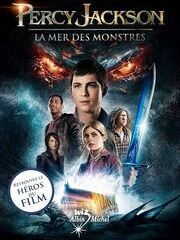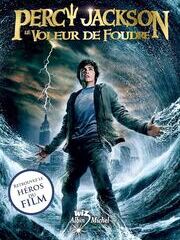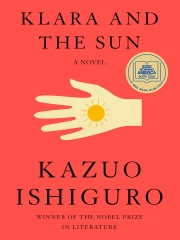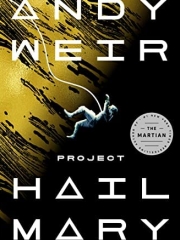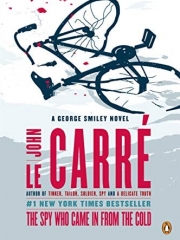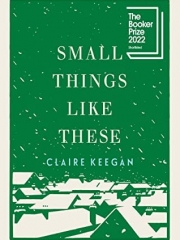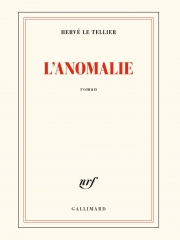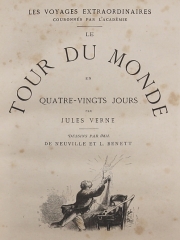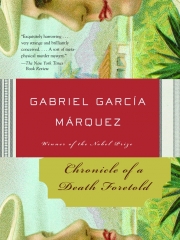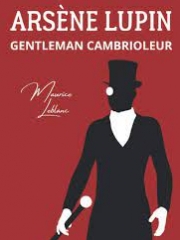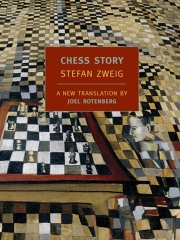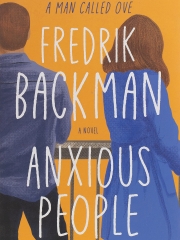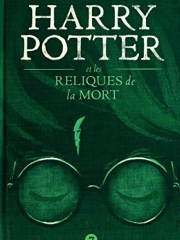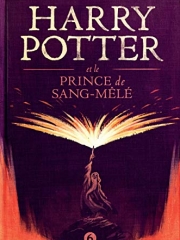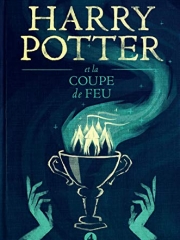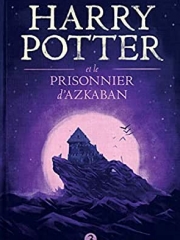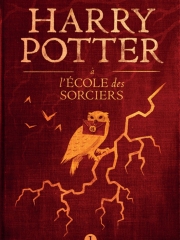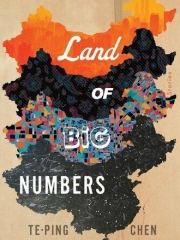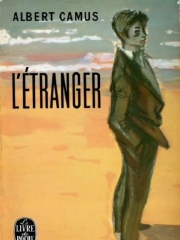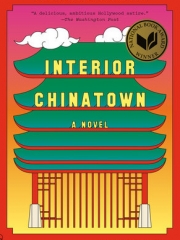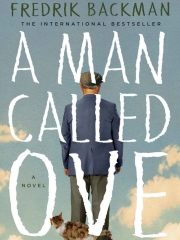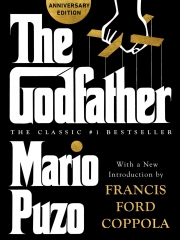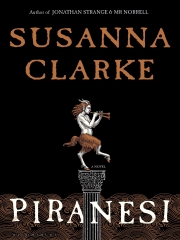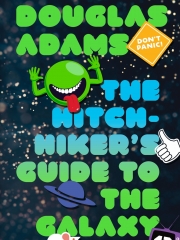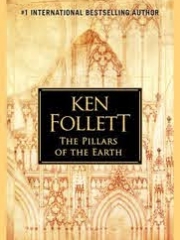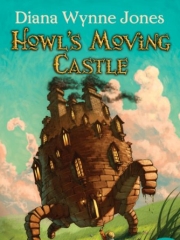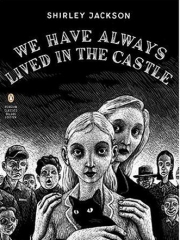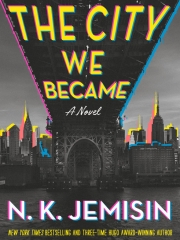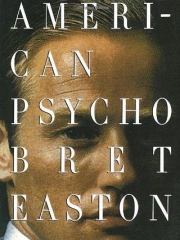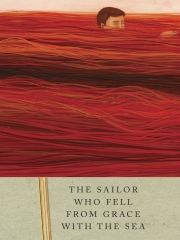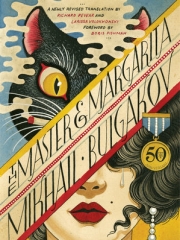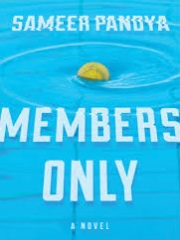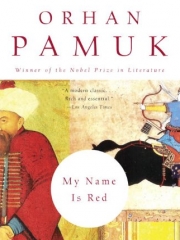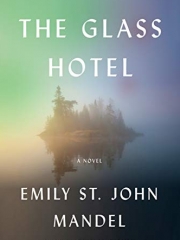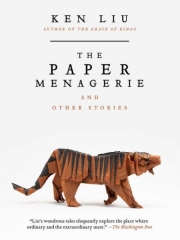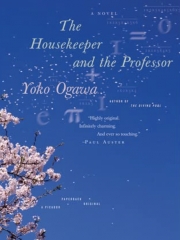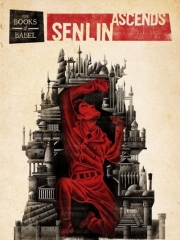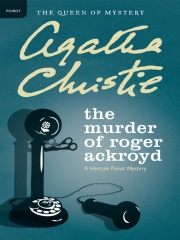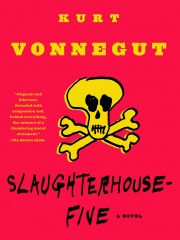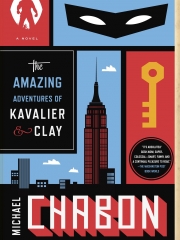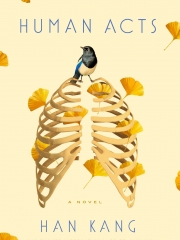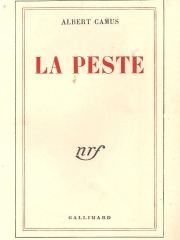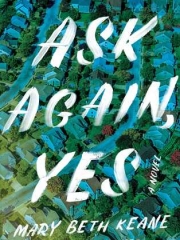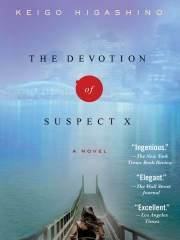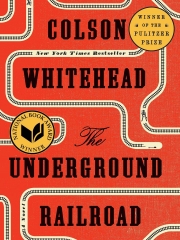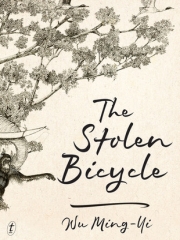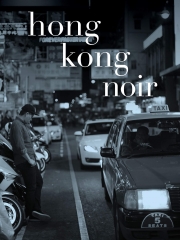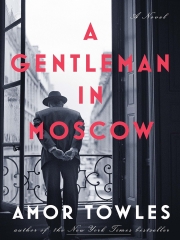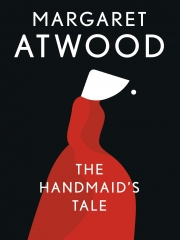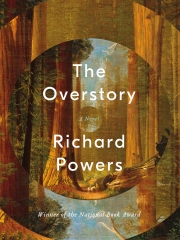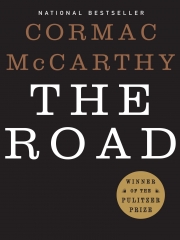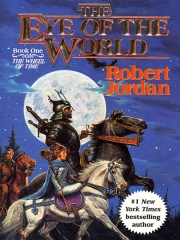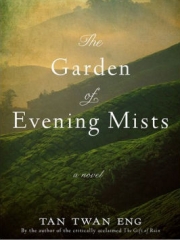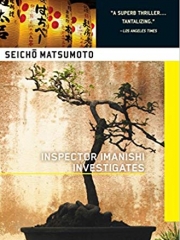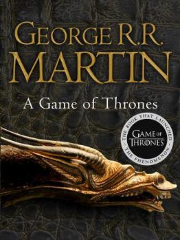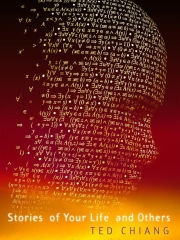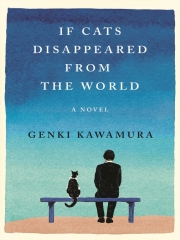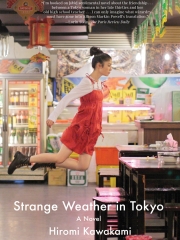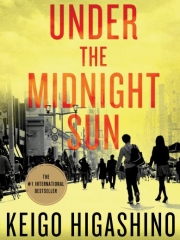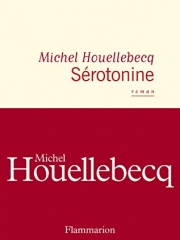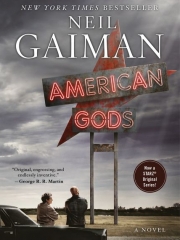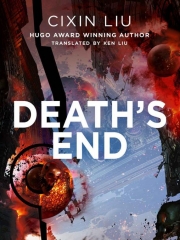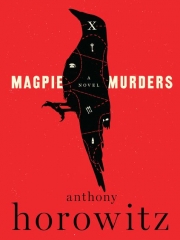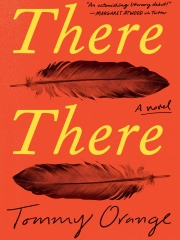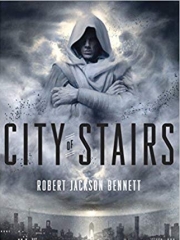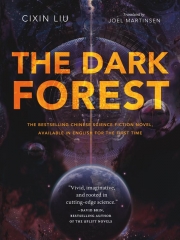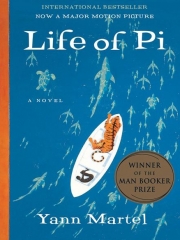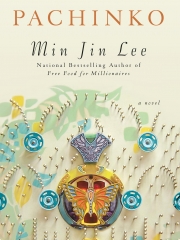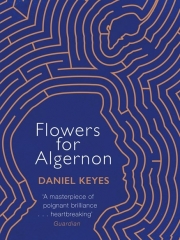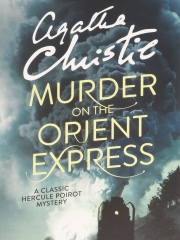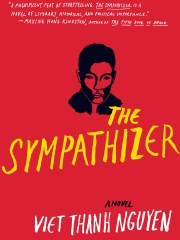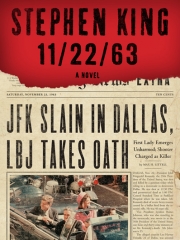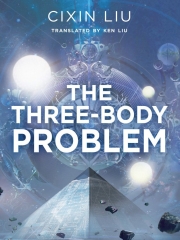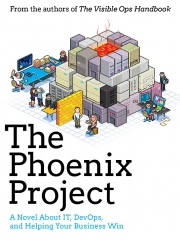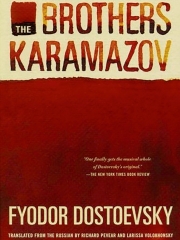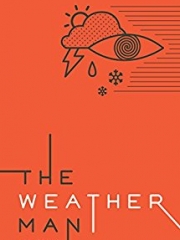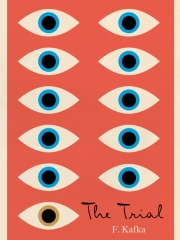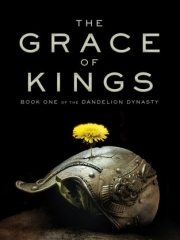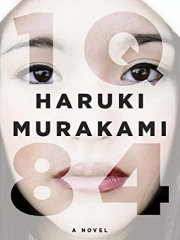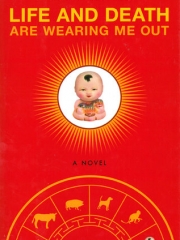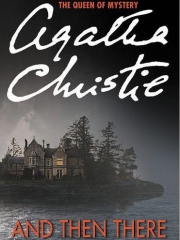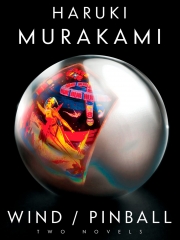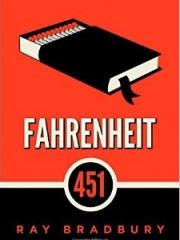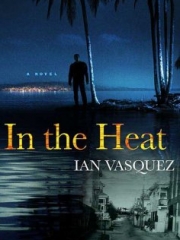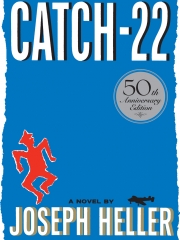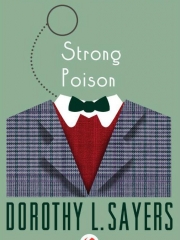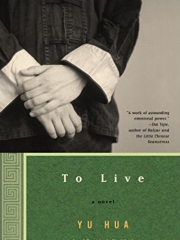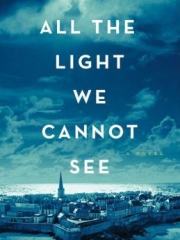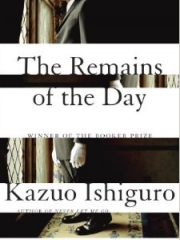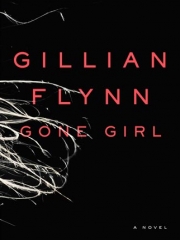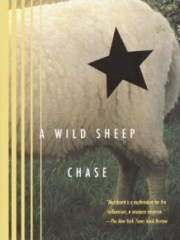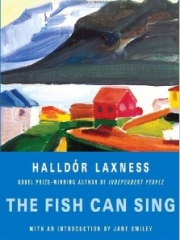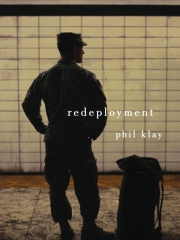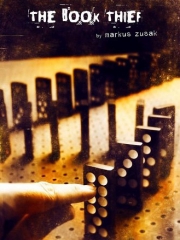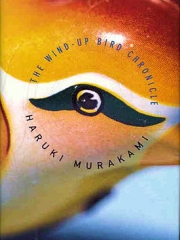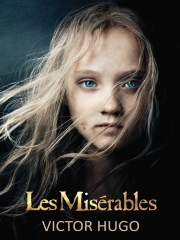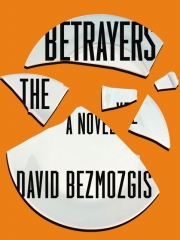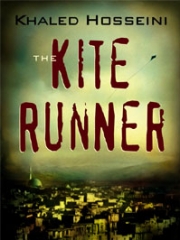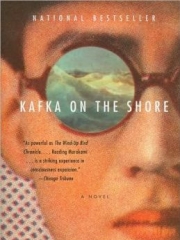The Wind Up Bird Chronicle by Haruki Murakami
What does “Wind Up Bird Chronicle” mean? The wind up bird shows up early in the story. But that doesn’t mean it makes any sense. It sounds like it’s winding a spring. That still doesn’t make any sense. And the rest of this book doesn’t make any sense either. This is now my third Murakami book in a few months. Besides Norwegian Wood, the other books are so weird that there’s no way to summarize the plot. It’s difficult to even give a two sentence overview. Murakami paints this totally realistic life where totally surreal things happen. It’s not fantasy. It’s dreamlike yet not a dream. This book is a good 600 pages. But once it gets going, even though it feels like nothing really happens, the action is so captivating that it’s hard to stop.
Because there are so many great quotes, I might go over 10.
1) “Thirty seconds is all it would take to say, ‘I’ll be home late tonight,’ and there are telephones everywhere, but you just can’t do it.”
It takes one second to respond to a “Dinner?” text, but I still can’t do it.
2) “This was very different from the image of home that I had imagined vaguely for myself before marriage. But this was the home I had chosen. I had had a home, of course, when I was a child. But it was not one I had chosen for myself. I had been born into it, presented with it as an established fact.”
Sometimes having no choice is better because you don’t have to worry about making the wrong decision.
3) “‘There’s nothing you can do. There’s no way to prevent baldness. Guys who are going to go bald go bald. When their time comes, that’s it: they just go bald. There’s nothing you can do to stop it.'” – May
A great example of the above. But still, I hope the day never comes.
4) “‘But knowing what I don’t want to do doesn’t help me figure out what I do want to do. I could do just about anything if somebody made me. But I don’t have an image of the one thing I really want to do. That’s my problem now. I can’t find that image.'” – May
May is by far my favorite character. Her boyfriend died in a motorcycle accident. She carries around a boombox. She counts the number of bald people at the train station and even segments them by severity. And she ends up working at a wig factory.
5) “And when I thought about Japan, I began to feel as if I had been abandoned at the edge of the world. Why did we have to risk our lives to fight for this barren piece of earth devoid of military or industrial value, this vast land where nothing lived but wisps of grass and biting insects?” – Lieutenant Mamiya
A significant theme in the book is commentary on WWII. Stories about Japanese, Russians, Mongolians, and Chinese – complete with a Japanese soldier being skinned by a Russian in Mongolia. History is written by the victors. Especially if you live in the country that won. It’s so rare to read something from the German or Japanese perspective.
6) “‘Results aside, the ability to have complete faith in another human being is one of the finest qualities a person can possess.'” – Noboru Wataya
Noboru, Kumiko’s brother, is Toru Okada’s archrival. He doesn’t speak much in the book, but here he points out how Toru never questioned his wife’s loyalty before she ran away. Who can you completely trust?
7) “‘Stop agreeing with everything I say! It’s not as if you’re going to solve everything by admitting your mistakes. Whether you admit them or not, mistakes are mistakes.'” – May
Another gem from May. I don’t like it when people always agree or disagree with me. Agree first, then point out your disagreement with an “and”. Real life 101.
8) “Two-thirds of the earth’s surface is ocean, and all we can see of it with the naked eye is the surface: the skin. We hardly know anything about what’s underneath the skin.” – Kumiko
One thing from the National Museum of Natural History has stuck with me: Bioluminescence might be the most common way of communication between life forms. That puts things in perspective. It’s somewhat surprising how small a percentage of human beings seek to explore these parts of the earth. We only care about a minuscule part of this planet.
9) “A small company like hers made no provision for anything so grand as maternity leave. A woman working there who wanted to have a child had no choice but to quit.”
Where’s Abe?
10) “‘If people lived forever – if they never got any older – if they could just go on living in this world, never dying, always healthy – do you think they’d bother to think hard about things, the way we’re doing now?'” – May
Life doesn’t have meaning if it doesn’t end.
11) “‘I was nothing but a prostitute. A prostitute of the flesh. A prostitute of the mind.'” – Creta
One of the most surreal characters who throws Toru’s life into disarray is Creta, who sleeps with Toru repeatedly in his dream. He doesn’t know when he sees her in real life or a dream. If I had to pick one phrase to remember from this book, it would be “prostitute of the mind.”
12) “‘Names are, if anything, irrelevant.'” – Nutmeg
The concept of names is a recurring theme. The cat is originally called Noboru Wataya, after Kumiko’s brother. Then he becomes Mackerel. Toru meets Malta and Creta, named after Malta and Crete. Then he meets Nutmeg and Cinnamon. Nutmeg gives this name to herself on the spot here. Why do names matter?
13) “It has nothing to do with the war; it could happen to anyone anywhere. Everybody thinks it’s happening because of the war. But that’s not true. The war is just one of the things that could happen.” – Nutmeg
This is my interpretation. Yes you’re at war. But when you’re in a battle, just one on one. You don’t have to kill the other person. War is an excuse.
14) “But his voice would not come out, because the one he found in the bed was himself.”
What can be more scary than finding yourself in your bed?
15) “Lately, it’s really been bothering me that, I don’t know, the way people work like this every day from morning to night is kind of weird. Hasn’t it ever struck you as strange? I mean, all I do here is do the work that my bosses tell me to do the way they tell me to do it. I don’t have to think at all. It’s like I just put my brain in a locker before I start work and pick it up on the way home. I spend seven hours a day at a workbench, planting hairs into wig bases, then I eat dinner in the cafeteria, take a bath, and of course I have to sleep, like everybody else, so out of a twenty-four-hour day, the amount of free time I have is like nothing. And because I’m so tired from work, the ‘free time’ I have I mostly spend lying around in a fog. I don’t have any time to sit and think about anything. Of course, I don’t have to work on weekend, but then I have to do the laundry and cleaning I’ve let go, and sometimes I go into town, and before I know it the weekend is over. I once made up m mind to keep a diary, but I had nothing to write, so I quit after a week. I mean, I just do the same thing over and over again, day in, day out.” – May
This is why I don’t Vine anymore. There are only so many different cubicles to Vine.
May’s series of letters to Toru towards the end of the book are my favorite chapters. Genuine feelings from a friend to a friend, not knowing if Toru ever read the letters.
16) “Money doesn’t come with name attached.”
If money doesn’t have names, do people need to?
17) “I kept staring at the message on the screen, but still no Send mark appears. My own machine is still set to Receive. Kumiko is thinking about what to write next.”
I really wonder how difficult technology has made it to write a realistic present day story. This form of early chat client was a great addition to the story.
18) “The ‘present’ was a baseball bat.”
It would take too long to explain the significance of the baseball bat that a mysterious woman – who can voluntarily make her voice sound like Kumiko’s – gives Toru in room 208 of an imaginary (or was it?) hotel where Noboru (or was it?) dies but doesn’t die. It has to do with a guitarist who purposely burns his palms in a bar on the day of Kumiko’s abortion and who gets clubbed to death by Toru with said baseball bat. It also has to do with The Wind Up Bird Chronicle #8, a story that magically appears on Cinnamon’s computer screen which talks about Cinnamon’s father (I believe) and how he witnessed Japanese soldiers killing Chinese workers with a swing of the bat as WWII drew to a close. It also has to do with the sudden disappearance of the baseball bat from the bottom of the well in the backyard of a haunted-house-turned-fitting-house where Toru sits in darkness to think about himself.
19) “I’ll never understand why everybody else bothers to go somewhere way far away and pay good money to see some stupid movie instead of enjoying these people.” – May
These are the duck people.
Digging up all these quotes has made me realize again how great this book was. You never know what’s coming. It’s never what you expect, but it also is never shocking and seems to make sense. He makes me feel like these things can happen to me. Makes me question why people live the lives they live. Makes me question why I care about what I care about. That said, the book is a lot to digest. I think I’m done with Murakami for a while. But definitely looking forward to the next one.

